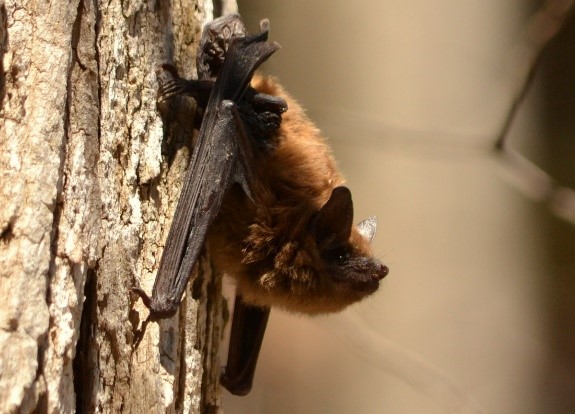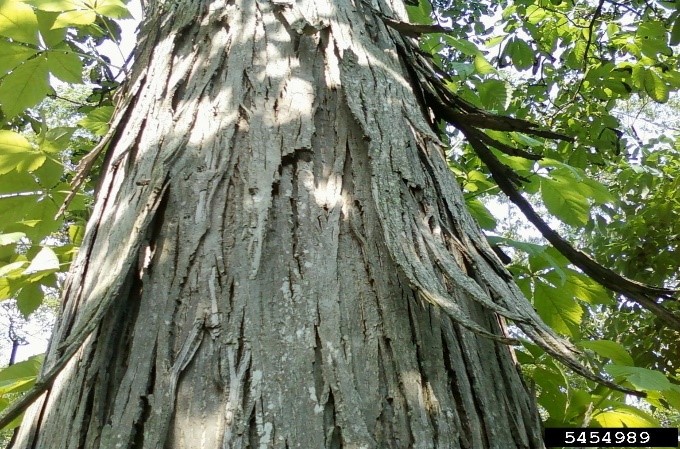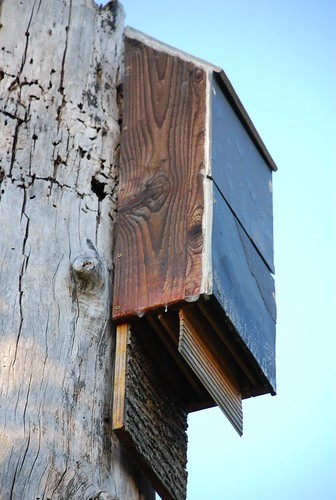Celebrating bats and their ecological services

Bats may be the most underappreciated animals that live in our community. The ecological services they provide are endless, and yet they are feared and hated by many. This is likely due to cinematic embellishments and folklore.
The truth is, most bats are harmless, preferring to avoid humans as much as possible. Let’s take a closer look at bats that may live in your neighborhood.
Of the approximately 900 species of bats found in the world, 45 live in the United States and 15 of those have been found in Kansas. All Kansas bats feed on insects, such as mosquitos. The US Forest Service estimates that species such as the little brown bat (Myotis lucifugus) eat an average of 500 mosquitos per individual per night. When you consider that bat colonies can sometimes have over 100 individuals, that’s a lot of insects!
Roosting patterns
 Bats are most active during the twilight hours of the evening, returning to their roosts before dawn. While a small number of species return to caves every morning, many bats roost in trees or wooden structures during the day. Roost trees can be alive or dead and usually contain sloughing bark that bats can crawl underneath. The shagbark hickory is an excellent species for bat roosts.
Bats are most active during the twilight hours of the evening, returning to their roosts before dawn. While a small number of species return to caves every morning, many bats roost in trees or wooden structures during the day. Roost trees can be alive or dead and usually contain sloughing bark that bats can crawl underneath. The shagbark hickory is an excellent species for bat roosts.
Houses for Bats
 Are you having trouble keeping bats out of your house or attic? One effective way of keeping bats out of your house is providing them with an attractive housing alternative. Bat houses fit that bill and are commercially available to purchase.
Are you having trouble keeping bats out of your house or attic? One effective way of keeping bats out of your house is providing them with an attractive housing alternative. Bat houses fit that bill and are commercially available to purchase.
You can also build your own bat house by following building plans. For more information on building and placing bat houses, visit Bat Conservation International on the web.
 Learn more
Learn more
For more information about bats and plans to build a bat house, download the K-State Research and Extension Bat Guide.
Sources: US Forest Service, Kansas Department of Wildlife and Parks, Bat Conservation International